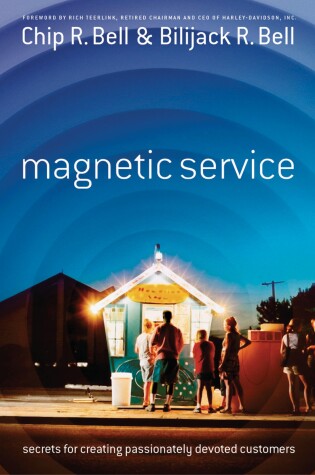1
2 total works
Set
Partnerships are fast becoming the primary structure of contemporary business, as organizations partner with vendors, unions, customers, and even competitors to take advantage of short-term market opportunities, leverage intellectual capital, and create more flexible and innovative enterprises. Even more important are our everyday partnerships—with the person in the cubicle down the aisle, the department down the hall, or the supplier across town.
In this important guide, authors Chip Bell and Heather Shea tell you how to create and maintain truly great partnerships. Using examples drawn from the world of business and the world of dance to illustrate the principles and practices of great partnering, they lead you step-by-step from deciding if partnership is right for you to celebrating the end of a successful partnership.
Dance Lessons is the first book to fully explore the interpersonal side of partnerships, which is more often than not what causes partnerships to falter or fail—or to flourish and excel. It is a wise yet practical guide to the inner workings of great partnerships, revealing exactly how the champions choreograph their partnership dances for consistently great performances.
In this important guide, authors Chip Bell and Heather Shea tell you how to create and maintain truly great partnerships. Using examples drawn from the world of business and the world of dance to illustrate the principles and practices of great partnering, they lead you step-by-step from deciding if partnership is right for you to celebrating the end of a successful partnership.
Dance Lessons is the first book to fully explore the interpersonal side of partnerships, which is more often than not what causes partnerships to falter or fail—or to flourish and excel. It is a wise yet practical guide to the inner workings of great partnerships, revealing exactly how the champions choreograph their partnership dances for consistently great performances.
Set
In an era of economic stress, rapid change, and social networking, customers are distracted, disgruntled, and harder to please than ever. Picky, Fickle, Vocal, Wired, and Vain - they have very little tolerance for error and are ready to spread the word quickly over the internet when things go wrong. If a company s customer service doesn t adapt to these new conditions, they will get burned by bloggers and viral videos that can severely damage their reputation. This book describes exactly what today s customers expect and how to give it to them. In Wired and Dangerous, Bell and Patterson provide a tested formula for restoring balance to the customer relationship by establishing what they call \u201cService Calm\u201d. The three steps to Service Calm sound simple, but they draw on sophisticated psychological principles and are profound in application: 1) Deal with Self, 2) Deal with Customer, 3) Deal with Context.

